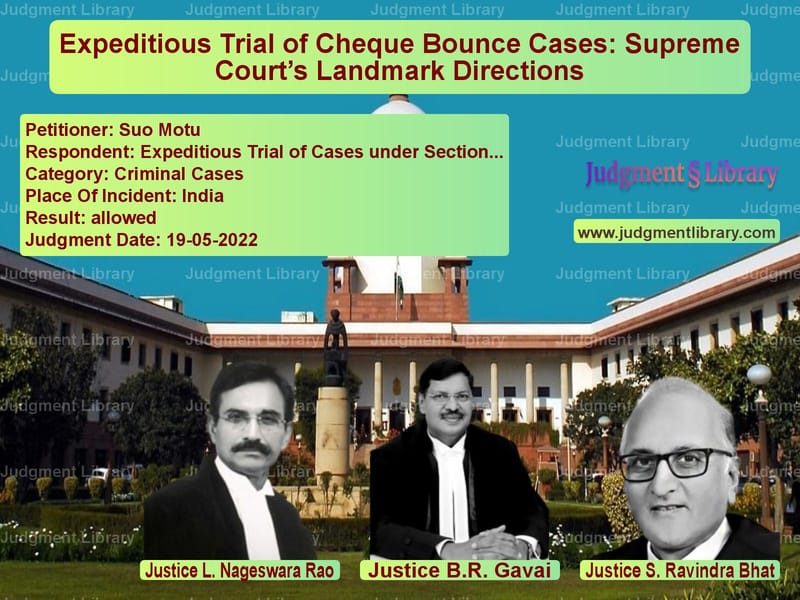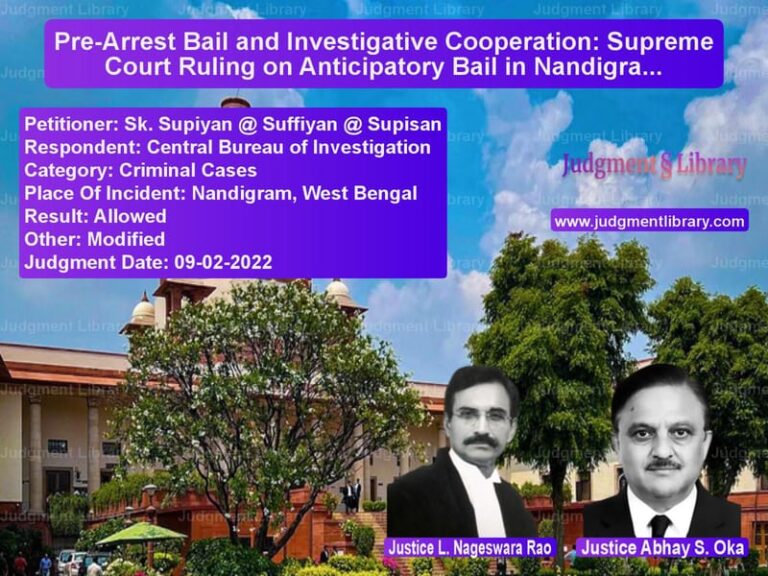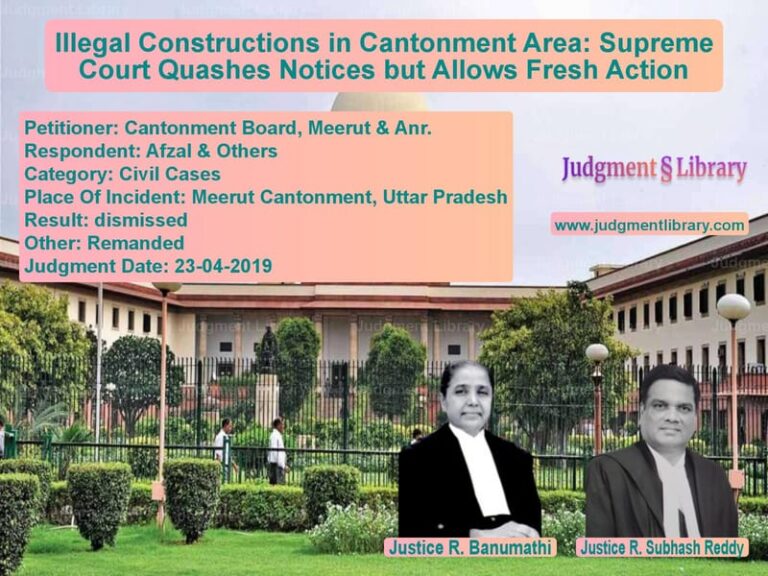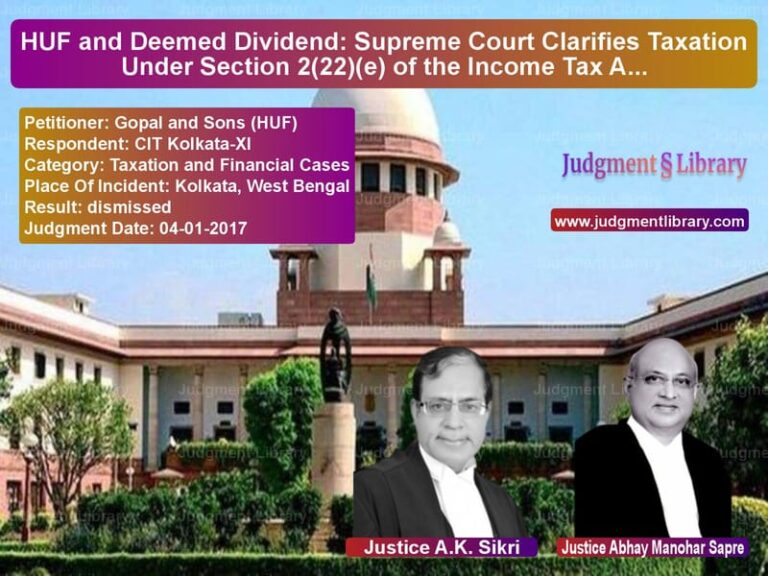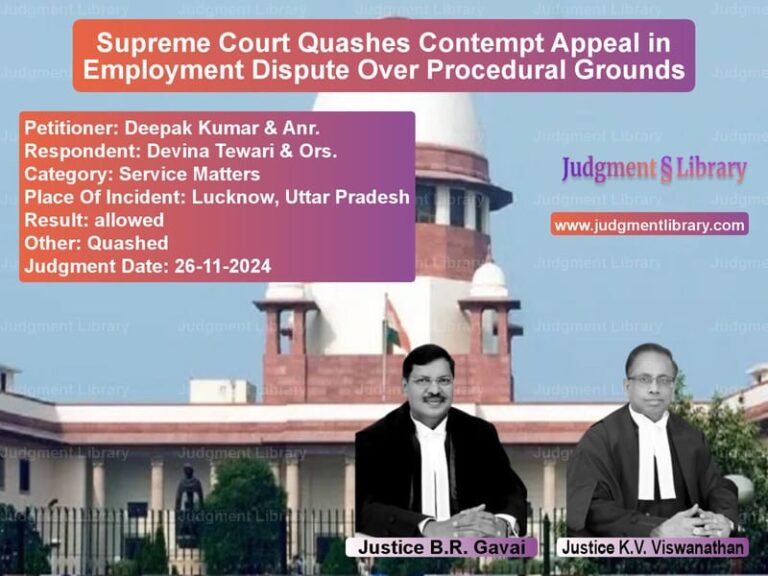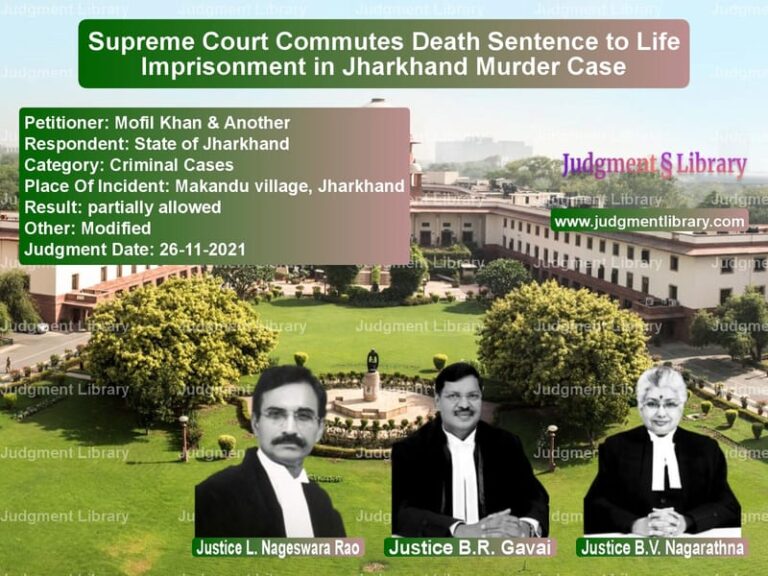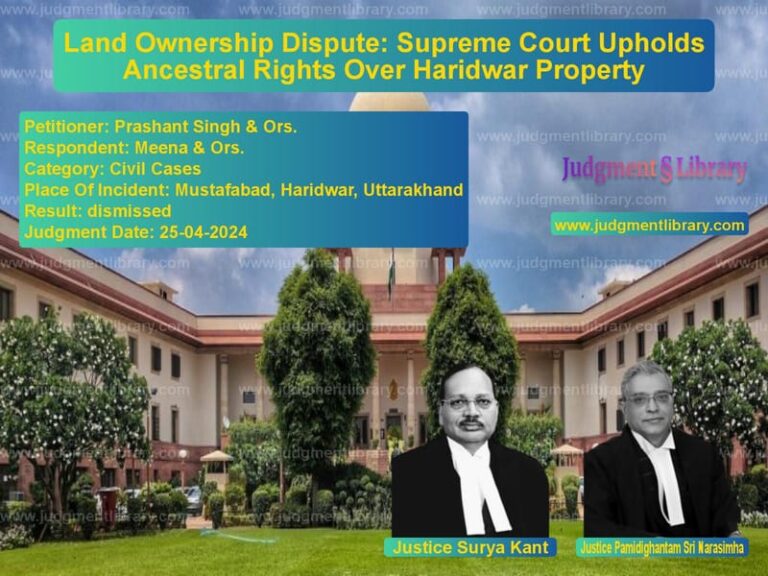Expeditious Trial of Cheque Bounce Cases: Supreme Court’s Landmark Directions
The Supreme Court of India, in a significant ruling, addressed the long-standing issue of judicial delays in cases filed under Section 138 of the Negotiable Instruments (NI) Act, 1881. This section pertains to the dishonor of cheques due to insufficient funds, a widespread problem that has led to a staggering backlog in Indian courts.
The Court recognized that such cases contribute substantially to the congestion in criminal dockets, delaying justice for both complainants and accused persons. With over 33 lakh pending cases, the Supreme Court intervened to ensure the expeditious disposal of these matters.
Background and Need for Reforms
The Supreme Court had previously issued directions regarding the timely disposal of cheque bounce cases. However, despite these orders, judicial delays persisted. The Court noted that as of November 2021, there were 26,07,166 pending cases under the NI Act. Alarmingly, by April 2022, this number had risen to 33,44,290—a staggering increase of 7,37,124 cases in just five months.
These cases accounted for 8.81% of all criminal cases pending in Indian courts, highlighting their overwhelming contribution to judicial inefficiency. Further, 11.82% of criminal cases delayed due to non-appearance of parties involved matters under the NI Act. The scale of the problem demanded urgent judicial intervention.
Supreme Court’s Observations on Delayed Justice
The Court emphasized that prolonged trials in cheque bounce cases severely impact business confidence and financial credibility. The slow judicial process not only affects individuals but also burdens businesses and financial institutions that rely on timely payments and enforceable financial transactions.
The Court remarked, “Delayed justice in matters concerning financial transactions impacts the economic ecosystem and shakes confidence in the credibility of financial instruments. A fair and expeditious trial is fundamental to justice.”
Recognizing these concerns, the Supreme Court examined multiple measures to expedite trials, including suggestions from expert committees, amici curiae, and state High Courts.
Key Issues Identified
- Increasing pendency of cases under Section 138 NI Act.
- Delays due to procedural inefficiencies, lack of dedicated courts, and non-appearance of accused.
- Burden on regular magistrate courts handling multiple types of criminal cases.
- Need for specialized judicial mechanisms to address NI Act cases promptly.
Expert Committee Recommendations
An Expert Committee was constituted to explore solutions for resolving the backlog. The Committee proposed the establishment of dedicated Special NI Courts under Article 247 of the Constitution. This plan required:
- Recruitment of 1,826 special judicial officers.
- Allocation of Rs. 126.59 crores for setting up special courts.
- Appointment of additional support staff.
However, implementing such large-scale judicial infrastructure reforms posed significant logistical and financial challenges.
Supreme Court’s Directives
Instead of creating entirely new judicial posts, the Supreme Court recommended an alternative approach—appointing retired judicial and administrative officers, such as former magistrates, tehsildars, and retired tribunal registrars, as special judges. This method would be cost-effective and leverage experienced personnel without requiring fresh recruitment.
To test the feasibility of this approach, the Court ordered a pilot study to be conducted for one year, from September 2022 to August 2023, in five states with the highest pending NI Act cases.
Pilot Study Guidelines
- Scope: 25 Special Courts to be set up—five in each of the identified high-pendency states (Maharashtra, Rajasthan, Gujarat, Delhi, Uttar Pradesh).
- Judges & Staff: Retired judicial officers and court staff to be appointed on a contractual basis for one year.
- Training: A four-week specialized training program to be conducted by State Judicial Academies.
- Type of Cases: Only cases where summons have been served and the accused has appeared in court will be handled.
- Use of Technology: Virtual hearings and online examination of witnesses to be implemented for efficiency.
- Data Collection: Weekly and quarterly reports to monitor progress.
Implementation Challenges
While the pilot project seeks to provide a structured mechanism for expedited trials, challenges remain:
- Ensuring that retired judges and staff can handle the workload effectively.
- Addressing delays caused by non-appearance of accused persons.
- Implementing technological solutions uniformly across courts.
- Encouraging settlements through mediation to reduce case backlog.
Expected Outcomes
The Supreme Court expressed confidence that the pilot initiative would help gauge the effectiveness of appointing retired officers and introduce structural changes in handling cheque bounce cases. If successful, similar models could be replicated across the country.
By promoting efficiency, reducing procedural delays, and leveraging alternative dispute resolution mechanisms, this initiative aims to restore confidence in financial transactions and the judicial process.
Petitioner Name: Suo Motu.Respondent Name: Expeditious Trial of Cases under Section 138 of N.I. Act 1881.Judgment By: Justice L. Nageswara Rao, Justice B.R. Gavai, Justice S. Ravindra Bhat.Place Of Incident: India.Judgment Date: 19-05-2022.
Don’t miss out on the full details! Download the complete judgment in PDF format below and gain valuable insights instantly!
Download Judgment: suo-motu-vs-expeditious-trial-of-supreme-court-of-india-judgment-dated-19-05-2022.pdf
Directly Download Judgment: Directly download this Judgment
See all petitions in Bail and Anticipatory Bail
See all petitions in Fraud and Forgery
See all petitions in Money Laundering Cases
See all petitions in Extortion and Blackmail
See all petitions in Cyber Crimes
See all petitions in Judgment by L. Nageswara Rao
See all petitions in Judgment by B R Gavai
See all petitions in Judgment by S Ravindra Bhat
See all petitions in allowed
See all petitions in supreme court of India judgments May 2022
See all petitions in 2022 judgments
See all posts in Criminal Cases Category
See all allowed petitions in Criminal Cases Category
See all Dismissed petitions in Criminal Cases Category
See all partially allowed petitions in Criminal Cases Category

